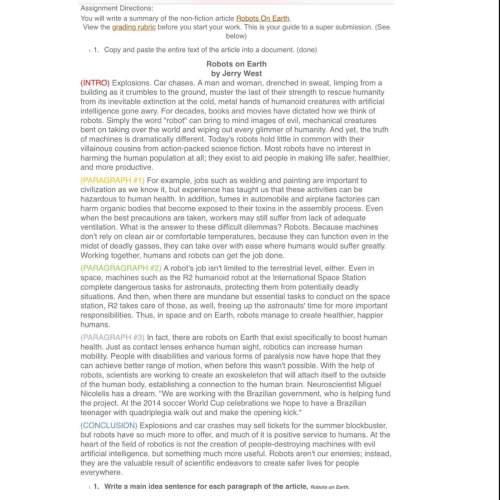
English, 16.12.2019 17:31 elizabethxoxo3271
Which of the following excerpts from joseph stalin's 1941 radio broadcast would best be classified as incendiary, or designed to stir up conflict?
a. [o]ur country has come to death grips with its most malicious and most perfidious enemy — german fascism.
b. collective farmers must drive off all their cattle and turn over their grain to the safe keeping of the state authorities.
c. we must organize all-round assistance to the red army, insure powerful reinforcements for its ranks.
d. [t]he chief virtue of the soviet people must be courage, valor, fearlessness in struggle.

Answers: 3


Another question on English

English, 22.06.2019 02:30
In a group discussion, which statement most clearly uses evidence to support a conclusion? a) the author makes some good points, but i feel that he’s ultimately biased. b) the author proves that he’s biased when he uses terms like “silly” and “stupid”. c) the author obviously hates the way fast food tastes, which is why he’s negative. d) the author first criticizes fast food, and then goes in to criticize junk food.
Answers: 2

English, 22.06.2019 02:30
The harlem renaissance dawned in an era of pervasive racism and segregation. although legally "free," many african americans were still bound by ideas that had their roots in the slavery of earlier centuries. identity and freedom are important ideas presented in many of the poems from the harlem renaissance. furthermore, the values of identity and freedom are not unique to particular times and places. as hughes expresses in "dream variations," all humans want to be able to develop their identities in freedom. what role does freedom play in the poems you read in this unit? what is required of a society to enable each individual to be true to his or her identity and be free to live by that identity? write about at least three of the poems, describing how the poet uses imagery to depict freedom and identity, the lack of it, or the desire for it.
Answers: 3

English, 22.06.2019 03:30
Hamlet is often called a tragic hero who is torn between thought and action. why does he not kill claudius when he sees him in act iii, scene iii? why does he kill polonius in act iii, scene iv? how do these two actions affect your understanding of hamlet as a man of thought or a man of action? your answer should be at least 250 words.
Answers: 1

English, 22.06.2019 06:00
Read the excerpt from act 3 of a doll’s house. mrs. linde: you seemed to me to imply that with me you might have been quite another man. krogstad: i am certain of it. mrs. linde: is it too late now? krogstad: christine, are you saying this deliberately? yes, i am sure you are. i see it in your face. have you really the courage, then—? mrs. linde: i want to be a mother to someone, and your children need a mother. we two need each other. nils, i have faith in your real character—i can dare anything together with you. krogstad [grasps her hands]. , , christine! now i shall find a way to clear myself in the eyes of the world. ah, but i forgot— how does the conflict in this passage develop a theme? mrs. linde creates a conflict by promising something she cannot give to krogstad, which develops the theme that empty promises can destroy relationships. krogstad continues the conflict by choosing clearing his name over having a life with mrs. linde, which develops the theme that you must often choose yourself over others. krogstad creates a conflict by deceiving mrs. linde about his intentions, which develops the theme that, in love, actions speak louder than words. mrs. linde resolves the conflict by committing to a new life with krogstad, which develops the theme that new beginnings are always possible.
Answers: 1
You know the right answer?
Which of the following excerpts from joseph stalin's 1941 radio broadcast would best be classified a...
Questions




Biology, 08.10.2019 01:00



Mathematics, 08.10.2019 01:00

English, 08.10.2019 01:00


Social Studies, 08.10.2019 01:00

Mathematics, 08.10.2019 01:00



Health, 08.10.2019 01:00



Chemistry, 08.10.2019 01:00

Mathematics, 08.10.2019 01:00





